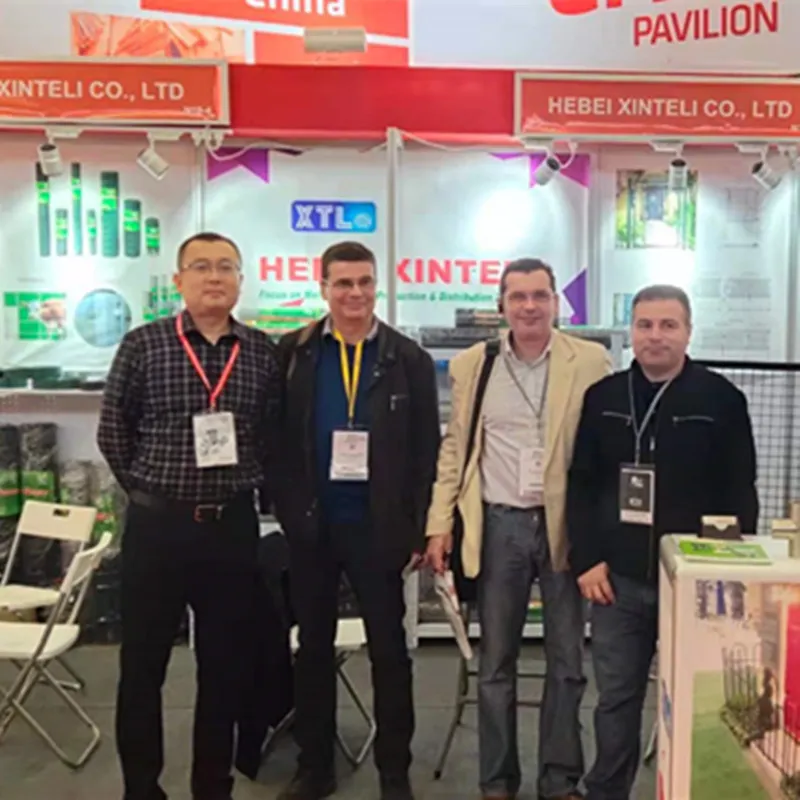
Nov . 15, 2024 03:24 Back to list
field wire fence
Exploring the Benefits and Applications of Field Wire Fencing
Field wire fencing, often known as farm fencing or livestock fencing, is a crucial element in agricultural practices and land management. It serves multiple purposes, from containing livestock to protecting crops from wildlife. Made from high-tensile wire, field wire fences are characterized by their durability, versatility, and cost-effectiveness. In this article, we will explore the various benefits and applications of field wire fencing.
Types of Field Wire Fencing
There are several types of field wire fencing available, each designed for specific purposes. The most common forms include
1. Barbed Wire Fencing This classic design features sharp barbs at regular intervals along the wire strands. Barbed wire fencing is primarily used for cattle and sheep, effectively preventing them from escaping while deterring potential intruders.
2. High-Tensile Fencing Made from heavier gauge wire, high-tensile fencing is designed to withstand significant pressure. It offers a reliable and long-lasting option for livestock containment, especially in larger pastures.
3. Woven Wire Fencing This type consists of vertical and horizontal wires woven together in a grid-like pattern. Woven wire fencing is ideal for containing smaller animals like goats and pigs, which may escape through wider spaces found in traditional fencing.
4. Electric Fencing While not a traditional wire fence, many farmers use electric fencing alongside field wire fencing for additional security. It delivers a mild electric shock to deter animals from pushing against or trying to escape through the fence line.
Advantages of Field Wire Fencing
Field wire fencing offers a plethora of benefits that make it a popular choice among farmers and landowners
. Key advantages include1. Durability One of the most appealing features of field wire fencing is its resilience. Made from galvanized steel, it resists rust and degradation, ensuring longevity even in harsh weather conditions.
2. Cost-Effectiveness Compared to other fencing materials like wood or vinyl, field wire fences are significantly more affordable. The materials used for wire fencing can be purchased at a lower price point, and installation is typically simpler and less labor-intensive.
field wire fence

3. Versatility Field wire fencing can be adapted for various applications beyond livestock containment. It can serve as a property boundary, provide protection for gardens, or even function as a trellis for climbing plants.
4. Low Maintenance Once installed, field wire fences require minimal upkeep. Unlike wooden fences that may need regular staining or painting, wire fences maintain their integrity without extensive care.
5. Visibility Field wire fencing allows for unobstructed views of the surrounding landscape, making it an aesthetically pleasing choice for many landowners. This visibility can enhance the outdoor experience, particularly in rural settings.
Applications of Field Wire Fencing
The applications of field wire fencing are as diverse as the types available, catering to various needs in agriculture and beyond. Some of the most common uses include
1. Livestock Management Field wire fencing effectively contains animals such as cattle, sheep, horses, and pigs. Properly installed fencing prevents livestock from straying too far and helps manage grazing patterns.
2. Crop Protection Farmers often use wire fencing to protect crops from deer, rabbits, and other wildlife that may cause damage. By creating a barrier between the crops and potential threats, field wire fencing plays a critical role in safeguarding harvests.
3. Property Boundaries Many landowners utilize field wire fencing to define property lines. Clear boundaries enhance security and minimize disputes between neighboring properties.
4. Garden Enclosures Field wire fencing can protect home gardens from animals looking to eat fruits and vegetables. Fencing can be fashioned into taller structures to deter jumping animals, keeping gardens safe and productive.
Conclusion
Field wire fencing is an invaluable asset to agriculture and land management. Its variety of types and numerous advantages make it a versatile choice for farmers, landowners, and gardeners. Whether for containing livestock, protecting crops, or establishing property boundaries, field wire fencing provides a reliable and efficient solution. As agricultural practices evolve, the continued use and development of field wire fencing will remain pivotal in supporting sustainable farming and effective land management strategies.
-
Why a Chain Link Fence is the Right Choice
NewsJul.09,2025
-
Upgrade Your Fencing with High-Quality Coated Chicken Wire
NewsJul.09,2025
-
The Power of Fence Post Spikes
NewsJul.09,2025
-
The Best Pet Enclosures for Every Need
NewsJul.09,2025
-
Secure Your Property with Premium Barbed Wire Solutions
NewsJul.09,2025
-
Enhance Your Construction Projects with Quality Gabion Boxes
NewsJul.09,2025
Products categories











